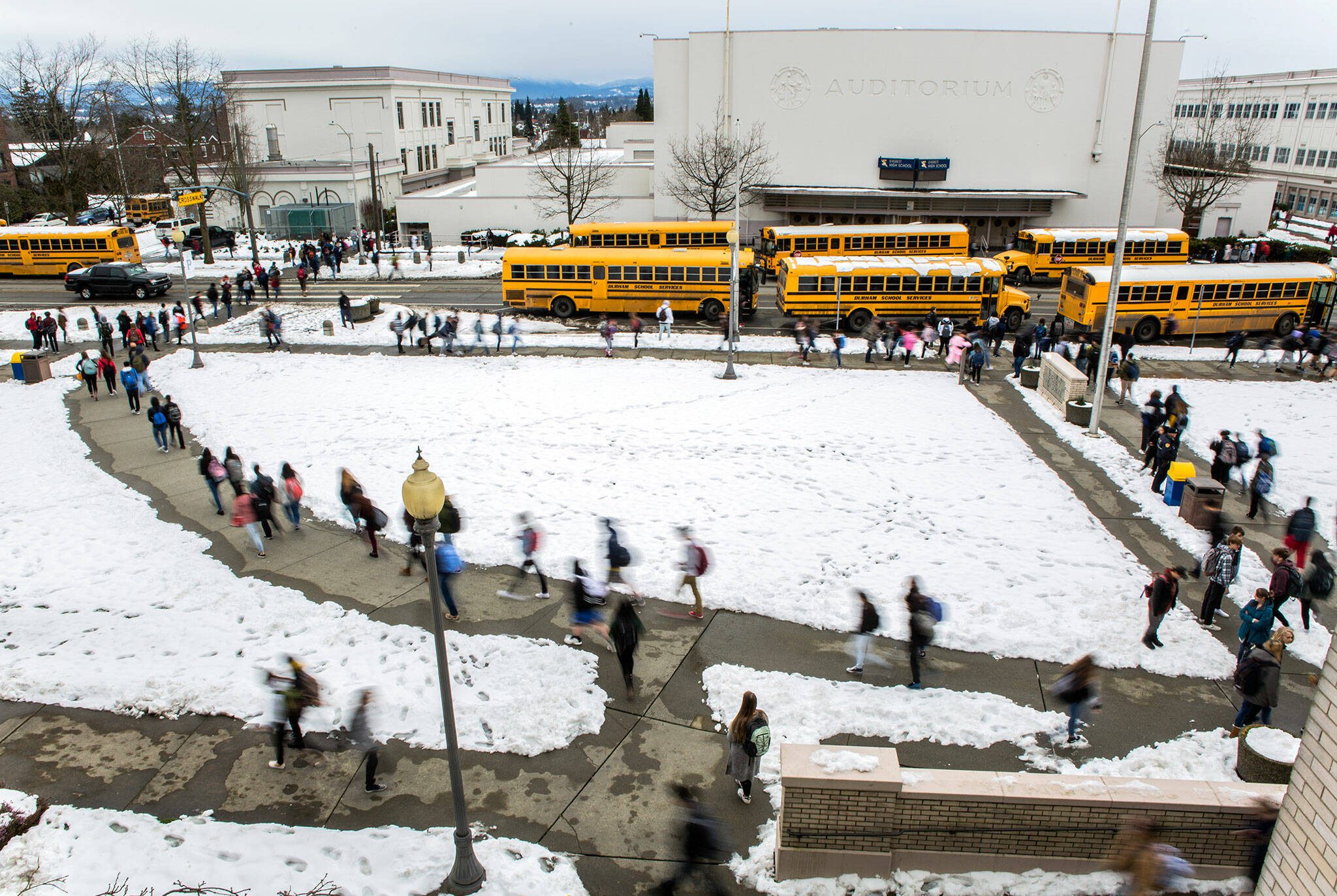OLYMPIA — After COVID’s peak across the country, students returned to the classroom.
Since then, absences have skyrocketed.
That stark trend has hit nearly every school district in Snohomish County.
Take Everett, for example. In the 2018-2019 school year, 86.5% of students had fewer than two absences per month, according to state data.
In the 2022-2023 school year, that plummeted to only 70.3%.
In Marysville, over 40% of students missed more than two school days per month in the 2022-2023 school year. Just a few years prior, it was slightly over 20%.
In Monroe, regular attendance dropped 20% between 2018 and 2023.
Now a new bill in the state Senate would offer support to students who are chronically absent and at risk of not graduating high school.
Senate Bill 5850 would create a grant program allowing tribes and community organizations to connect with chronically absent students and their families, to look for solutions to help get them back in class. “Chronically absent students” are defined as those who miss more than 10% of school days, for any reason.
Students are more likely to miss class if they come from low-income families, according to the American Federation of Teachers. Housing instability or a lack of transportation to school can create large barriers for kids pursuing their education.
Grant money could be used to improve communication between schools and families, through more family visits and making the impacts of low attendance clear to families. It also aims to remove barriers by giving kids reliable access to food, transportation, tutoring and school supplies.
It would also require districts to offer training and coaching to identify the early warning signs of students who are chronically absent, to connect them with the necessary resources.
The bill would impact students with either excused or unexcused absences.
“The problems are very much addressable, we can remove those barriers if we recognize them and engage with them,” the bill’s prime sponsor, Sen. John Braun, R-Centralia, said in a committee hearing last week.
Braun, the state Senate minority leader, said his bill is about more than just getting kids back in the classroom, but getting them in the classroom engaged, healthy and ready to learn.
Braun said his own daughter had to miss a lot of school because of her asthma.
“We were fortunate enough to help her get through that fine, but there are a lot of children who don’t have the support network to get there,” he testified.
The Everett school board supports the bill. Member Jen Hirman said raising attendance is a key focus of the school district, especially since the pandemic.
“When students are in school, they are learning,” Hirman, who was first appointed to the school board in 2022, wrote in an email.
Being out of the classroom for too many days can have big effects on learning.
For elementary-age children, that could mean reading at a lower grade level. For high school students, that could mean not graduating on time. For all ages, chronic absenteeism is one predictor of lower test scores.
Missing school has a negative impact on a student’s life outside of their education. Missing class is a common precursor of dropping out, which is linked to poor career prospects and involvement in the criminal justice system, according to a report from the White House.
“For us, it’s a matter of trying to identify barriers that are keeping kids from their learning in school, and addressing those as best we can,” Hirman wrote.
If Braun’s bill is enacted into law, it carries an estimated price tag of $478,000. It would expire at the end of 2026.
On Wednesday, the Senate Early Learning and K-12 Education Committee unanimously voted to move the proposal forward to the Senate Ways and Means Committee.
Jenelle Baumbach: 360-352-8623; jenelle.baumbach@heraldnet.com; Twitter:@jenelleclar.
Talk to us
> Give us your news tips.
> Send us a letter to the editor.
> More Herald contact information.

























